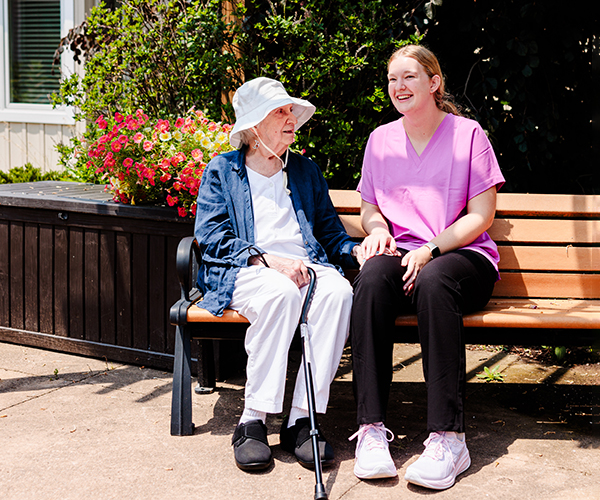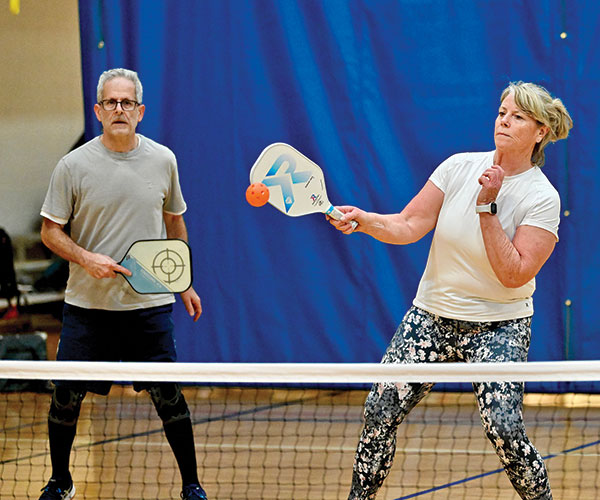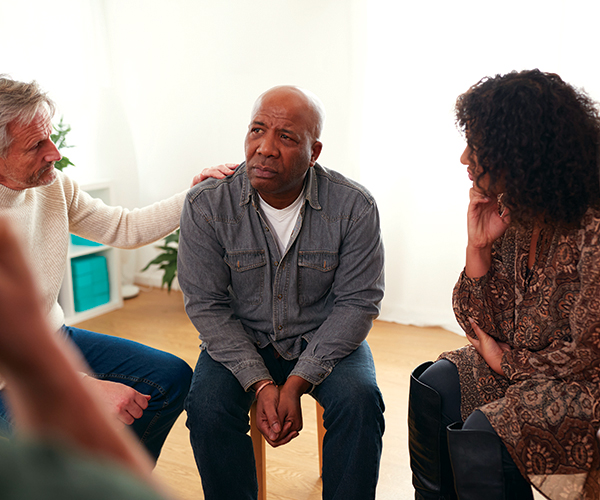For years, my grandmother and her friends met once a month for coffee and chitchat. They’d talk about their kids, their husbands and the days before they had kids and husbands.
More than friendly gab sessions, these get-togethers were formal meetings, convened monthly for more than 50 years to continue a tradition started when they were in grade school.
Before they were mothers and grandmothers, these eight women decided to ensure their enduring friendship by creating a club. “We were very picky about who we let in,” explains my grandmother.
Each month they held meetings, took attendance, collected dues and occasionally amended the constitution. Every once in a while, when the treasury got high enough, they treated themselves to a dinner out.
On a recent visit with my grandmother, Rena Picozzi, 82, and her friend Josephine DeFilippo, 83, we look over stacks of notebooks full of meeting minutes and attendance records. As they laugh over the records of their relationship, I realize what these friendships have meant to my grandmother. She has depended on her friends for empathy and support through every stage of her life.
“We have our therapy sessions when we get together,” says Josephine. “We could always talk to each other if we were upset about anything, and we’d know it wouldn’t go any further.”
My grandmother and her friends’ story is familiar to many seniors, who rely on their friends for support through illness and loss, or just for laughs over a cup of coffee. Studies have shown what they already knew: Strong social ties are part of a healthy life.
A 1999 study suggests that meeting a friend for lunch can be as beneficial to overall health as 20 minutes on a Stairmaster. Harvard researchers discovered in their 13-year survey of nearly 3,000 seniors that socializing was as important to health and longevity as exercise and eating right.
And a recent Australian study found that friendships could be even more important than family ties to prolonging a healthy life. That may not call for skipping family picnics, but it may mean catching up with a friend you haven’t seen in a while.
When my grandmother and Josephine had households full of children, their time together sometimes took a hit. But they were always there when it was important.
“Life gets lonely as you get older,” says Josephine. “Old friends have all that history. In good and bad, you’re there for each other.”
|||
For seniors who can’t live on their own, maintaining social ties can be tough. Lucky for friends Ron Leonetti, 94, and Marvin Cook, 96, coincidence and their Cleveland roots brought them together after a 50-year separation.
Ron and Marvin met in the Shaker Square neighborhood in the 1920s. As kids, they and other friends would get together for pinochle and parties at a nearby dance hall. Eventually, work and family took the two in separate directions and they lost touch.
Last year, in declining health, Ron moved from Florida to the Jennings Center for Older Adults in Garfield Heights to be near his family. When he attended a new residents’ meeting, he was surprised to see the face of his childhood friend.
Now, the two eat meals and attend Mass together. The renewed friendship has eased Ron’s transition into assisted living. His eyes tear up as he talks about his wife, who stayed behind in Florida to be with her family, but his loneliness disappears as he banters with Marvin.
“He always has been a big talker,” Marvin whispers confidentially as Ron reminisces.
The Jennings Center emphasizes the importance of social activities for residents. Lisa Brazytis, director of marketing and outreach for Jennings, says the community focuses on keeping them engaged with the world and with each other.
“Leisure activities have been shown to decrease boredom and depression because they provide something to look forward to and help an individual to feel involved and part of a group,” says Kathy LiPuma, director of life enrichment.
Ron and Marvin’s story is a testament to the healing nature of friendship. Though in their 90s, these two will always be as youthful as they feel when they’re together.
|||
Jan Arnett and Carol Mealy, both in their 60s and friends since college, know the value of keeping a busy social schedule. As former teachers, neither sees retirement as an excuse to clear her calendar.
“If I have a day with nothing to do, I feel like a slug,” says Jan.
But rarely does either woman have days like that. Both are active in their sorority alumni group and volunteer at their churches. Their social lives keep them healthy and happy, they agree.
“Friends take on importance as you get older,” Jan says.
Jan remembers a time when her friends took on an importance even she didn’t expect. A few days after her mother died, she went to church alone, overwhelmed with emotion. She found her friends waiting there to stand by her side, knowing she needed their support.
“There was no communication,” she says. “They just stood on either side of me. It was such a simple, warm thing. They understood.”
“Friends somehow seem to know if something’s wrong,” adds Carol.
Jan and Carol say they found it hard to maintain their friendships while they were working and raising families, but they say with good friends, you can spend years apart and easily come back together.
“You can always pick up where you left off, like no time has passed,” says Jan. “Your history brings you together.”
|||
My grandmother and Josephine’s 70-year friendship hasn’t always been smooth. They’ve struggled to maintain it amid family commitments and personal differences. But they’ve accepted each other and maintained a bond that has gotten them through a lot over the years.
They’ve seen their fellow club members die or move away. But the two of them have continued to meet for coffee and cake and a little dose of therapy.
“Everybody has their faults. We just don’t have as many,” laughs my grandmother as Josephine rolls her eyes.
That’s the thing about old friends, no matter what their age: Once you’re in the club, you’re a member for life.



